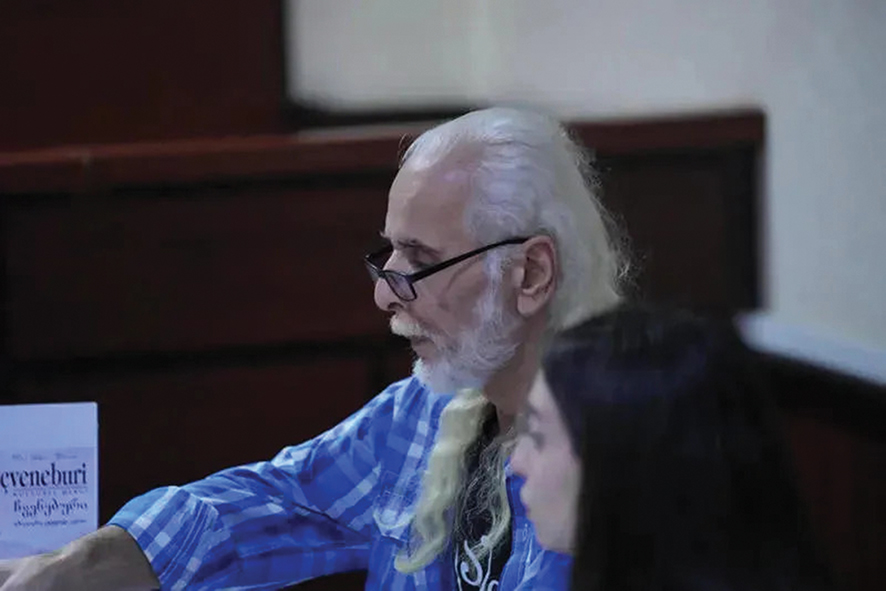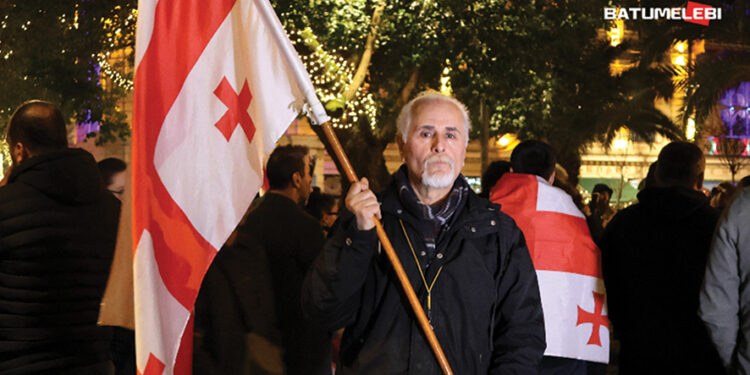The deportation of political activist Temur Katamadze, also known as Gapar Yilmaz, has sparked intense public debate in Georgia, seeing allegations of legal violations, coercion, and lack of transparency in the process publicly voiced. Katamadze, a Turkish citizen of Georgian descent and a known figure in Batumi’s protest movements, was forcibly removed from Georgia on June 10 and transferred to Turkey under disputed circumstances.
Katamadze’s final attempt to remain in Georgia centered on his fear of persecution in Turkey, where he said he had supported members of the Gülen movement through legal and translation services. Despite this, the Georgian courts denied his claims for protection, paving the way for his controversial removal.
Initially detained in Batumi on administrative grounds, Katamadze was rearrested for lacking legal residency after his release. Despite applying for refugee or humanitarian protection—citing fear of persecution in Turkey due to his association with the Fethullah Gülen movement—Georgian courts ultimately denied his request, concluding a legal process that went through eight judicial reviews.
According to his wife, Nino Kakulia, Katamadze’s deportation took place in secrecy and deviated from established procedures. Speaking to Interpressnews, Kakulia said the transfer was not carried out through the usual Sarpi border crossing, but instead via southern Georgia near the Armenian border. She also revealed that the activist had been under psychological pressure at the migration detention center and had begun a symbolic hunger strike days before his removal.
“We believe he may have suffered an emotional breakdown and was coerced into agreeing to leave — although we’re still trying to clarify the circumstances. What’s clear is that he was transferred last night,” Kakulia said Wednesday. “Turkey suspended his passport in 2020, but we only discovered this recently when we requested his documents. They also refused to issue him a one-time travel document, yet he was still deported.”
She claimed she only learned about the transfer indirectly—through a friend who received a call from a police station in Armaghani. Katamadze, she added, now faces uncertain and potentially dangerous conditions in Turkey, a country she believes targets political activists like her husband despite its outward support for diaspora communities.

“There’s no specific charge against him at this point, but the repressive machinery there is much more aggressive. Temur believes this is directly connected to his activism. While Turkey publicly supports diaspora communities, it seems they are threatened by active leaders and attempts to silence them.
“Temur met all the legal requirements for residency in Georgia. There are numerous legal violations in his case. The bottom line is that a person was deceitfully removed from the country,” Kakulia concluded.
In an official response, Deputy Minister of Internal Affairs Aleksandre Darakhvelidze defended the operation, stating that the deportation was conducted lawfully following a court ruling that had entered into legal force.
“We inform the public that Gapar Yilmaz’s expulsion was conducted in compliance with Georgian law,” Darakhvelidze said in a press briefing. “Since he did not leave voluntarily, authorities proceeded with forced removal as allowed by legislation.”
He also noted that the activist’s legal defense had appealed to the European Court of Human Rights, but the request for interim protective measures was denied.
The case drew strong criticism from human rights advocates and political observers, who argue that the removal of Katamadze was carried out with a lack of transparency and may have violated both domestic and international legal standards.
Among the most vocal critics was Georgia’s fifth president, Salome Zurabishvili, who condemned the deportation on social media, calling it “a departure from the Constitution and the legal foundations of the state.” In her statement, Zurabishvili said the secretive nature of the transfer raised troubling questions about the country’s democratic integrity.
By Team GT














